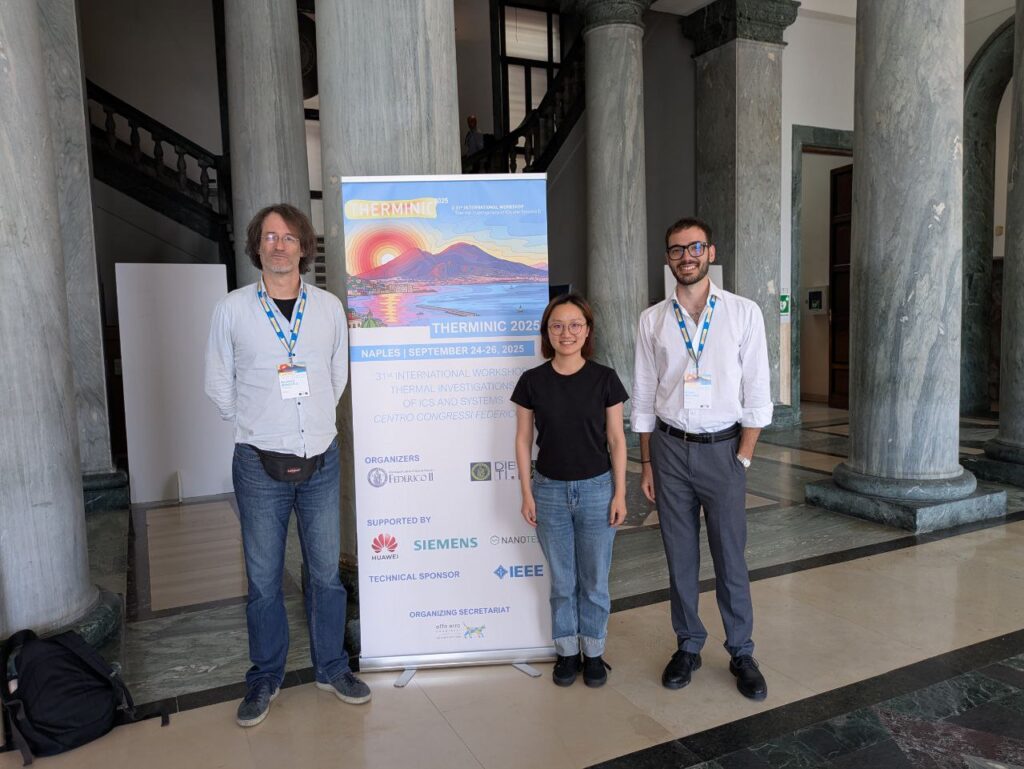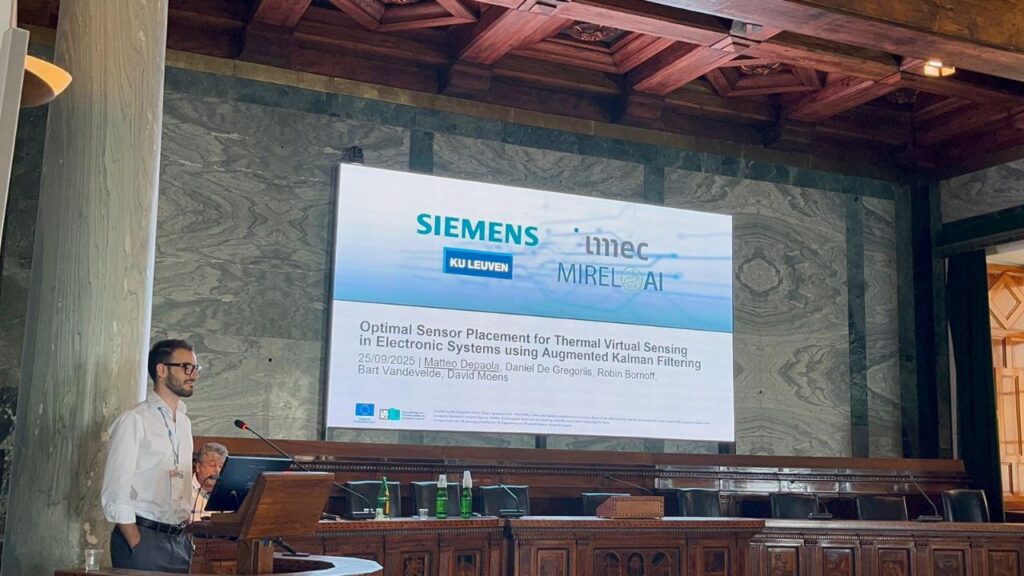The 31st International Workshop on Thermal Investigations of ICs and Systems (THERMINIC 2025) was successfully held in Naples from September 24th to 26th. The event provided an excellent platform for sharing and discussing cutting-edge research in thermal management.

THERMINIC is a highly specialized workshop focused on thermal management, heat dissipation in electronic devices, reliability, and coupled problems involving electronics, thermodynamics, and mechanical stress. It is particularly relevant for researchers and engineers working in micro-/power-electronics, packaging, thermal simulation, and advanced thermal materials.
Matteo Depaola presented his work on “Optimal Sensor Placement for Thermal Virtual Sensing in Electronic Systems using Augmented Kalman Filtering.” The study uses physics-based Digital Twins, composed of an Augmented Kalman Filter and a thermal parametric Reduced Order Model, to continuously estimate thermal parameters in electronic systems. Estimation performance and reliability depend on the sensing locations and measurement errors. To address this, Matteo developed an algorithm to evaluate optimal sensing locations considering parameter and measurement uncertainties. Thermal gradients and sensing location mismatch from the real system to its virtual model are considered to favor the selection of more reliable sensing locations. Simulation results show the approach is effective and ready for experimental validation.


Yanan Wu presented her work “Failure Analysis for Electronic Packaging Materials: A Comparative Study of Pulsed Thermography and Lock-in Thermography”, a comparative study of two non-destructive testing techniques — Pulsed Thermography (PT) and Lock-In Thermography (LIT)—for failure analysis in electronic packaging materials copper, aluminum, and polymers. The study evaluated defect detection performance using signal-to-background contrast and applied post-processing methods like Pulse Phase Thermography, Principal Component Thermography, and Thermographic Signal Reconstruction to enhance PT results. Findings showed that PT offers faster detection, while LIT provides higher sensitivity for materials with greater thermal diffusivity. The research offers valuable insights into the strengths and limitations of both techniques. Yanan was awarded the Best Poster Award for her work.
With THERMINIC 2025 concluded, we look forward to THERMINIC 2026 in Berlin.
